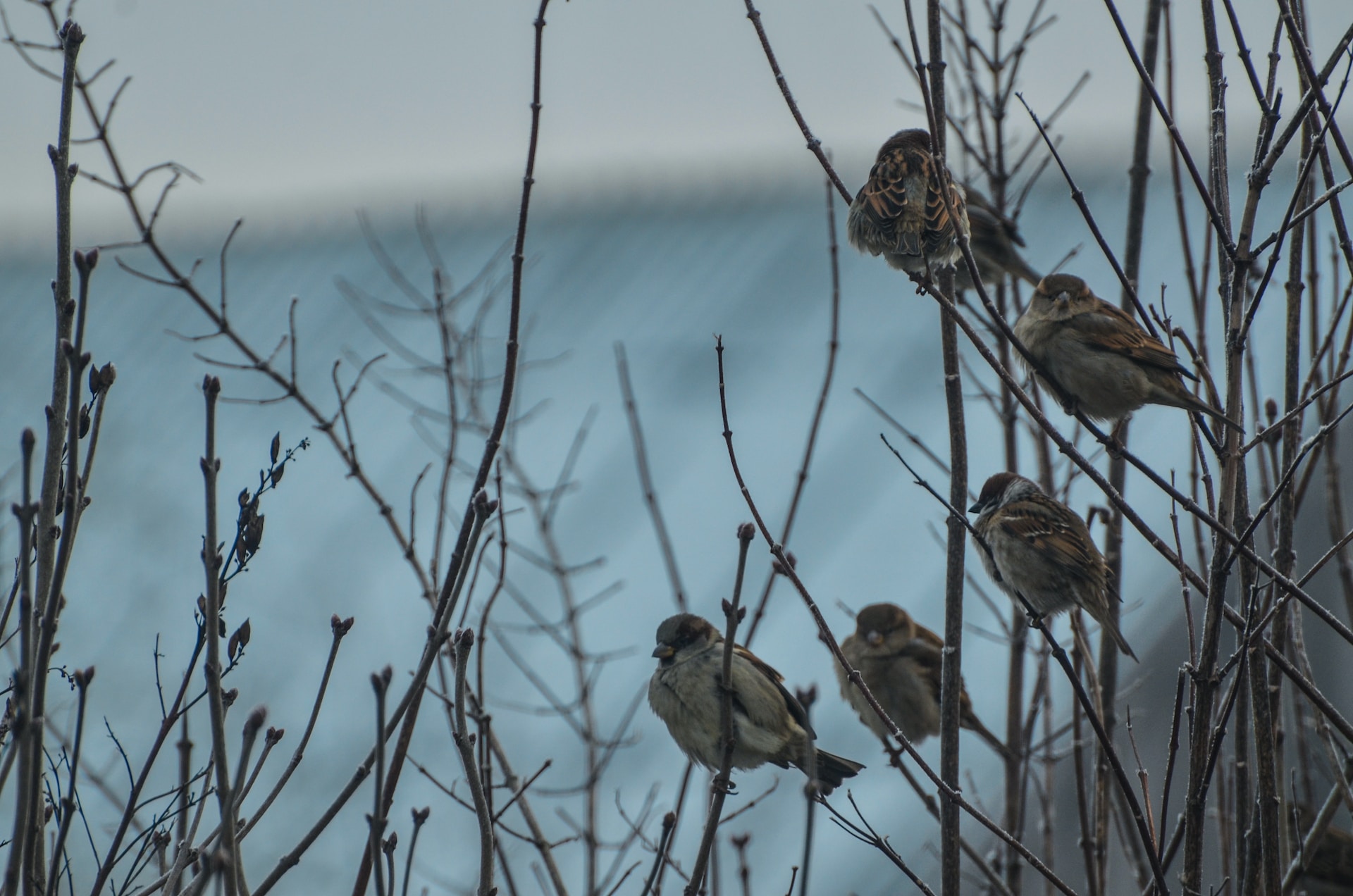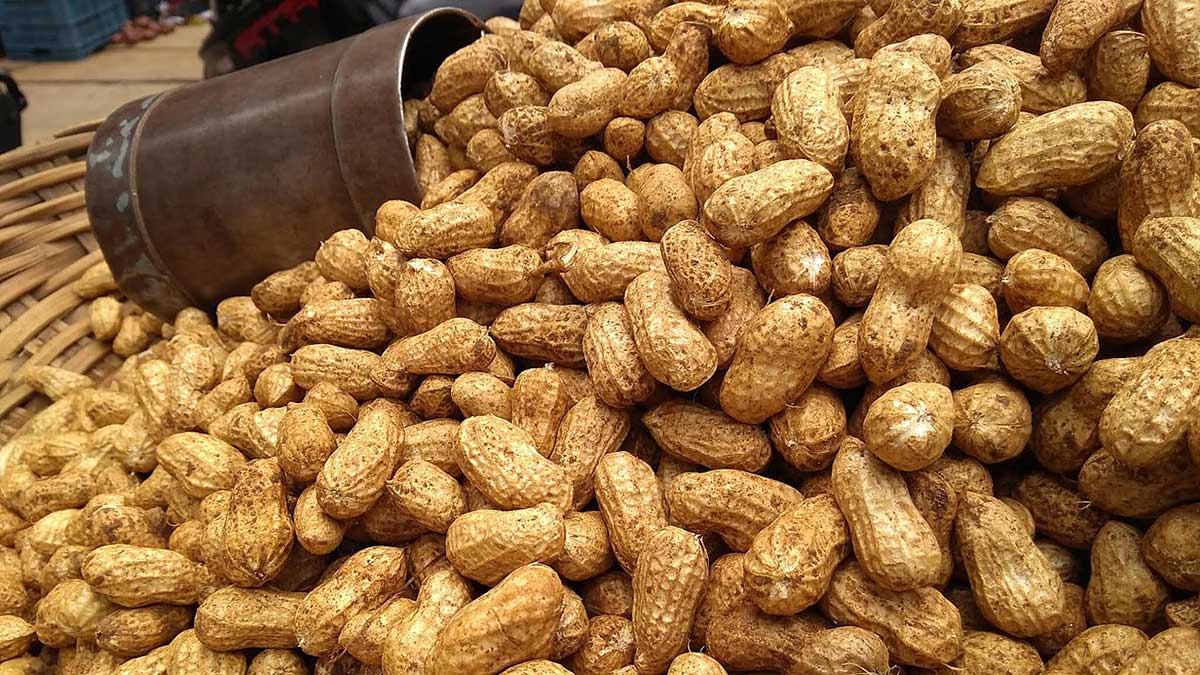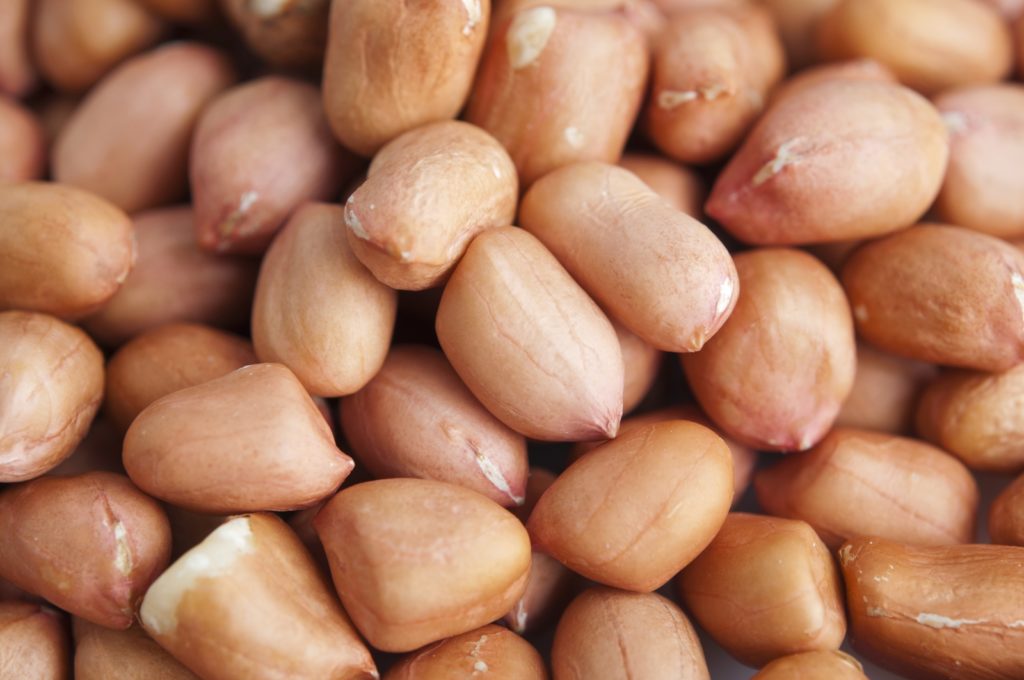Do Sparrows Eat Peanuts? Separating Fact From Fiction
The simple act of offering peanuts to sparrows has sparked debate and raised questions: Do Sparrows Eat Peanuts? Are peanuts a suitable and safe addition to their diet? In this article, we embark on a journey to answer this question and separate fact from fiction.
Author:Maya ReyesReviewer:Sophia HarperNov 17, 202311.7K Shares309.3K Views

Sparrows, with their unassuming charm and ubiquitous presence, are a beloved sight in backyards and gardens around the world. Many bird enthusiasts are keen to support these feathered neighbors by providing food, and peanuts are a popular choice.
However, the simple act of offering peanuts to sparrows has sparked debate and raised questions: Do Sparrows Eat Peanuts? Are peanuts a suitable and safe addition to their diet? In this article, we embark on a journey to answer this question and separate fact from fiction.
The Sparrow's World
Sparrows, often considered "everyday birds," are remarkably diverse and adaptable creatures that can be found in almost every corner of the world. While there are around 140 different species of sparrows, they share some common features that make them easily identifiable.
These small birds typically measure around 4 to 7 inches in length, with plump bodies and short tails. Their plumage varies among species, but many have brown and gray feathers, often with distinct markings that help birdwatchers identify them. Sparrows are known for their robust and chirpy songs, and their vocalizations vary between species, adding to the charm of observing these birds.
The Role Of Sparrows In Ecosystems
Despite their unassuming appearance, sparrows play a vital role in the ecosystems they inhabit. Their primary contributions include:
- Seed Dispersal: Sparrows consume a variety of seeds and help distribute them across their habitat. This assists in the regeneration of plant species and supports the overall health of the environment.
- Insect Control: Sparrows are opportunistic insect-eaters, and their diet often includes a wide range of insects, including harmful pests. By controlling insect populations, sparrows contribute to maintaining ecological balance.
- Ecological Indicator: Changes in sparrow populations can serve as an indicator of the overall health of an ecosystem. A decline in sparrow populations may signal environmental disturbances.
Sparrow Behavior And Feeding Habits
Sparrows are not picky eaters; they have an omnivorous diet that includes seeds, grains, insects, and small fruits. Their dietary preferences can vary with the season and the availability of food. Some common foods in their diet include:
- Seeds and Grains: Sparrows readily feed on seeds such as sunflower seeds, millet, and grains like wheat and oats. These items are staple foods for many species.
- Insects: Insects form an essential part of the sparrow's diet, particularly during the breeding season when they feed insects to their young. Common insect prey include caterpillars, spiders, and beetles.
- Small Fruits: Sparrows will also consume small fruits like berries, especially when insects and seeds are scarce.
Their foraging behavior often involves hopping and scratching the ground to find food. They are social birds and often forage in groups, creating a pleasant and bustling atmosphere around bird feeders.
The Peanut Paradox
Peanuts have long been a favorite choice among bird enthusiasts for offering a readily available and energy-packed food source to attract a wide variety of bird species. They are a convenient option for backyard bird feeding due to their widespread availability and affordability. However, their popularity extends beyond their convenience; they are also a highly nutritious food source for birds.
Peanuts provide an excellent source of energy for birds, especially during the colder months when food can be scarce. They are rich in essential nutrients such as protein, healthy fats, and various vitamins and minerals, making them a valuable supplement to the diets of many backyard birds. Their high fat content, in particular, is crucial for birds to maintain their energy levels, especially during the demanding breeding and migration seasons.
Nutritional Value Of Peanuts For Birds
Peanuts, whether in-shell or shelled, offer a range of nutritional benefits for birds:
- Protein: Birds require protein for muscle development and maintenance. Peanuts provide an ample source of protein, aiding in their overall health.
- Healthy Fats: The high-fat content in peanuts supplies the necessary energy birds need to endure harsh weather conditions and long migrations.
- Vitamins and Minerals: Peanuts contain vitamins like niacin, thiamin, and vitamin E, as well as essential minerals like magnesium, phosphorus, and potassium, contributing to a well-rounded avian diet.
- Caloric Density: Peanuts are calorie-dense, meaning a small amount can provide a substantial amount of energy, which is especially important during cold winters.
Given these nutritional advantages, peanuts seem like a sensible choice for feeding backyard birds, including sparrows. However, the peanut paradox arises due to a longstanding debate regarding the safety and appropriateness of peanuts as bird food, especially when it comes to sparrows.
Controversies Surrounding Peanuts And Sparrows
The debate surrounding peanuts and sparrows primarily revolves around two central concerns:
- Choking Hazard: Some individuals worry that peanuts may pose a choking hazard to small birds like sparrows. The hard, smooth shell of peanuts could potentially be problematic if not broken down correctly by the birds.
- Salted and Processed Peanuts: Salted or flavored peanuts intended for human consumption can be harmful to birds due to their high salt content. Processed peanuts may also contain preservatives or additives that are detrimental to avian health.
To address these concerns, it is essential to examine scientific research and real-world observations to determine whether sparrows can safely consume peanuts and whether there are other factors that need to be considered. This investigation will be the focus of the next chapter, where we aim to provide clarity on the truth about sparrows and peanuts.
The Fact Check
Myth Or Reality - Can Sparrows Eat Peanuts?
The central question that beckons in the discussion about sparrows and peanuts is whether these small birds can safely consume peanuts as part of their diet. To answer this, we turn to scientific studies and real-world observations to discern fact from fiction and provide a definitive response.
Observations And Scientific Studies
Scientific research and observations have played a pivotal role in uncovering the truth about sparrows and peanuts. Numerous studies have been conducted to examine the feeding habits and preferences of sparrows. These studies have yielded several noteworthy findings:
- Peanuts as a Food Source: Many species of sparrows, including the House Sparrow (Passer domesticus), have been observed feeding on peanuts, both in-shell and shelled. These observations suggest that sparrows can indeed consume peanuts.
- Cracking Techniques: Sparrows are known to use their beaks to crack open the shells of peanuts or peck at them to access the nutritious contents inside. Ornithologist Zahn Mcclarnonstates that this behavior counters the concern that peanut shells pose a choking hazard. This behavior counters the concern that peanut shells pose a choking hazard.
- Preparedness Matters: Offering peanuts in a suitable and bird-friendly form, such as shelled peanuts or small peanut pieces, can enhance the safety and accessibility of this food source for sparrows and other birds.
- Variation in Behavior: While many sparrows consume peanuts, it's important to note that individual preferences and behaviors may vary among bird species. Not all sparrows will immediately gravitate toward peanuts.
Other Factors Affecting Sparrows' Peanut Consumption
While sparrows can consume peanuts, there are additional factors to consider:
- Quality of Peanuts: Offering fresh, unsalted, and unflavored peanuts is crucial for bird safety. Salted or processed peanuts intended for human consumption should be avoided.
- Feeder Design: Choosing an appropriate feeder can also impact the safety of feeding peanuts to sparrows. Open tray feeders or hoppers that allow birds to access peanuts easily are recommended.
- Alternative Food Sources: Even if sparrows can eat peanuts, it's essential to provide a diverse range of foods in their diet. This ensures they receive a balanced and nutritionally rich diet.
Sparrows can safely consume peanuts if offered in a bird-friendly form and sourced from the right places. The peanut paradox is, to a large extent, resolved by understanding the nuances of how sparrows interact with this food source.
Safe And Responsible Bird Feeding
As we've explored the intricacies of sparrows and peanuts and established that sparrows can safely consume peanuts under the right conditions, it is crucial to delve into the principles of safe and responsible bird feeding. Responsible bird feeding not only ensures the well-being of the birds but also contributes to the overall health of the ecosystem. Here, we provide practical guidelines for those who want to create a welcoming and nurturing environment for sparrows and other backyard birds.
Guidelines For Feeding Sparrows And Other Birds
- Use Appropriate Feeders: Choose feeders that are suitable for the size and feeding habits of sparrows. Open tray feeders or hopper feeders work well for offering peanuts, seeds, and other foods.
- Quality of Food: Always use fresh, unsalted, and unflavored peanuts. Avoid using peanuts intended for human consumption, as they may contain additives or salt that can be harmful to birds.
- Regular Cleaning: Clean feeders and feeding areas regularly to prevent the buildup of mold, bacteria, and parasites. A dirty feeding station can lead to the spread of diseases among birds.
- Location Matters: Position bird feeders in safe and accessible locations. Ensure they are protected from predators, such as cats, and are not in harm's way, like near windows that birds might collide with.
- Diverse Diet: Offer a variety of foods to cater to different bird species' dietary needs. In addition to peanuts, provide seeds, suet, and fruits to ensure a balanced diet.
- Fresh Water: Birds need access to clean and fresh water for drinking and bathing. Ensure that birdbaths or water sources are regularly cleaned and filled.
- Seasonal Considerations: Be mindful of seasonal changes in food availability. During winter, high-energy foods like peanuts can be especially beneficial, but in spring and summer, provide insects and caterpillars for growing chicks.
- Be Patient: It may take some time for sparrows and other birds to discover and trust your feeding station. Be patient, and they will eventually visit.
Alternatives To Peanuts
While peanuts are a suitable food source for many birds, if you're still concerned about offering them to sparrows, there are plenty of alternative foods that can cater to their nutritional needs. Consider offering:
- Sunflower Seeds: Sparrows, along with many other birds, are particularly fond of sunflower seeds. They are a rich source of essential nutrients and are easily accessible.
- Nyjer (Thistle) Seeds: Nyjer seeds are a favorite of finches, but sparrows may also be attracted to these tiny, oil-rich seeds.
- Suet: Suet, especially during the winter months, provides a high-energy source of fat for sparrows and other birds.
- Fruits: Offer small pieces of fruits like apples, pears, or berries as a natural and healthy food source.
Bird Feeder Placement And Maintenance
Proper placement and maintenance of bird feeders are crucial for the safety and well-being of birds:
- Predator Awareness: Position feeders in locations where birds have a clear view of approaching predators, such as cats or hawks.
- Window Collision Prevention: Place feeders either close to windows to prevent bird collisions or far enough away to reduce the risk.
- Regular Cleaning: Clean feeders at least once a month, and more frequently if needed, to prevent disease transmission.
By following these guidelines, you can contribute to a safer and healthier environment for sparrows and other birds while enjoying the delightful sights and sounds of these feathered visitors. In the next chapter, we'll broaden our perspective to discuss the diverse dietary needs of various bird species and the importance of enjoying bird watching responsibly.
Beyond Sparrows And Peanuts
While we've explored the intricate relationship between sparrows and peanuts, it's essential to broaden our perspective and understand the diverse dietary needs of various bird species. Birdwatching is a fascinating and rewarding hobby, but it comes with a responsibility to ensure the well-being of all avian visitors to your backyard. This chapter delves into the world of birds beyond sparrows and peanuts, emphasizing the importance of enjoying birdwatching responsibly.
Diverse Bird Species And Their Dietary Needs
Sparrows are just one small part of the vast avian world. The diverse array of bird species demands a range of dietary options, so bird enthusiasts must consider the unique preferences of the birds that visit their feeders. Here are a few examples of bird species and their dietary needs:
- Finches: Species like goldfinches and house finches have a penchant for small seeds like thistle (nyjer) seeds and sunflower hearts. These foods are rich in fats and proteins, making them ideal for these birds.
- Woodpeckers: Woodpeckers relish suet, a high-energy food source packed with fat. They also feed on insects, often found in tree bark.
- Hummingbirds: These tiny wonders primarily feed on nectar, and providing nectar-rich flowers and feeders with a sugar-water solution can attract and sustain them.
- Orioles: Orioles are attracted to fruits and nectar. Offering oranges, grape jelly, and sugar-water feeders can be particularly appealing to them.
- Sparrows: As we've discussed, sparrows enjoy a diverse diet that includes seeds, grains, insects, and small fruits.
Understanding the specific needs of these and other bird species ensures that your bird feeding station caters to a wide variety of birds, creating a rich and diverse ecosystem in your own backyard.
Do Sparrows Eat Peanuts? - FAQ
Can You Eat Peanuts For Birds?
Peanuts Not only are our wild birds peanuts super popular with all manner of garden birds, they're also an excellent source of nourishment. Among their many benefits, peanuts for birds are: High in protein. Rich in nutritional oils.
Do Birds Eat Groundnut?
Peanuts are an excellent food source for birds and you shouldn't hesitate to leave them in your garden. They are easy to source and refill – just make sure they are unsweetened and unsalted.
Which Bird Feeder For Peanuts?
If you are feeding peanuts to birds in your garden, it is important to remember that whole peanuts should only ever be fed from wire mesh peanut feeders for safety reasons. Our range of peanut feeders includes those made with plastic or with more robust metal cases.
Conclusion
In the quest to unravel the mystery of whether sparrows eat peanuts, we have navigated the world of sparrows and the dietary choices that often surround them. Through careful consideration of scientific studies and real-world observations, we have uncovered the truth: sparrows can indeed consume peanuts when provided in the right form and sourced responsibly. This conclusion offers valuable insights for bird enthusiasts, as it underscores the importance of offering appropriate, unsalted peanuts in a bird-friendly manner.

Maya Reyes
Author
Maya Reyes’s wanderlust was sparked in the temples of Luang Prabang, where the scent of lemongrass and the chants of monks revealed the transformative power of travel.
Since then, her journey has been defined by cultural immersion and authentic connections. From learning batik in Indonesia to sharing meals with nomadic families in Mongolia, Maya seeks experiences that highlight the human stories behind each destination.
Travel for her is a way to weave her narrative into the world’s cultural tapestry, creating bridges across diverse ways of life. Maya has traveled to 15 countries and shares her insights through writing and storytelling.

Sophia Harper
Reviewer
Sophia Harper’s photography acts as a portal to the soul of the places she visits. Drawn to South America’s landscapes and cultures, she has spent years capturing everything from the majesty of ancient ruins to the vibrancy of urban streets.
Sophia’s work isn’t just about documenting moments; it’s about evoking the emotions and stories behind them. A dedicated photographer, she has worked with local communities across South America to capture their rich cultural narratives through her lens.
Latest Articles
Popular Articles

